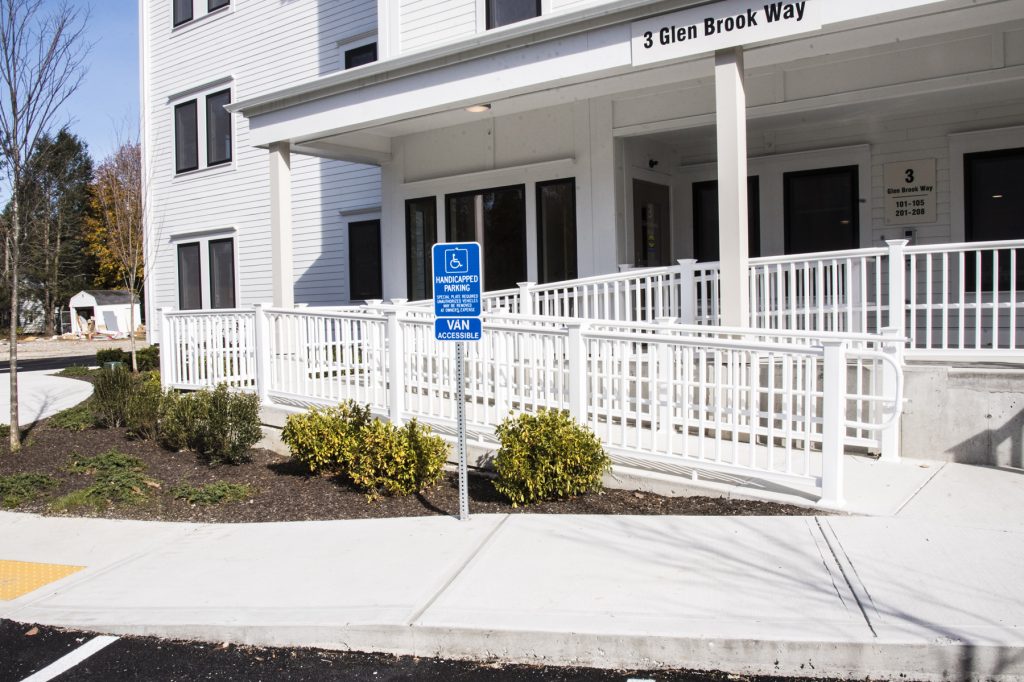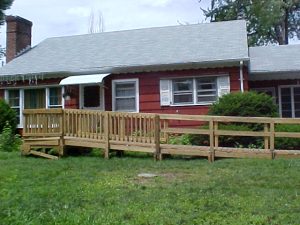State law requires that 5% of units in new 50+ unit apartment buildings be fully accessible, and 95% of units be adaptable or easily altered to the needs of a disabled resident. On the other hand, renovated buildings originally built before 1991 are not required to add any adaptable units; 95% of units can remain totally inaccessible indefinitely. This loophole even applies to former commercial buildings such as mills and factories that are converted to housing. The result is a severe lack of accessible housing, and a homelessness rate for people with disabilities more than double the overall rate. A new law would require adaptable units in renovated buildings.

Nobody should have to choose between an unsafe residence and a nursing home
- Living in nursing homes already puts people at greater risk for disease than those who live independently.
- The COVID-19 pandemic has put a spotlight on this issue. Over 60% of people who have died from the virus lived in nursing homes.
- According to the CDC, in-home falls from lack of accessibility features like grab bars cost Massachusetts $972 million per year.
Everyone deserves to live, work and participate in their communities
- 87% of our rapidly growing aging population wants to stay in their own communities, rather than in nursing homes.
- Of the 50,000 people living in nursing homes in our state, an estimated 20%-40% could live independently if we had enough accessible housing.
- The best way for older adults and people with disabilities to live full and safe lives is to build housing that can be adapted to meet their changing needs.
Make Massachusetts a leader in accessible housing again
- In 1968, Massachusetts led the nation’s efforts to make communities accessible for all by creating the Massachusetts Architectural Access Board (MAAB) which establishes and enforces building codes that balance the interests of property owners and the need for accessibility.
- The MAAB does not have jurisdiction over renovations of buildings constructed before 1991. The Accessible MA Act will close this loophole.
- This bill will require that adaptability features be added, when reasonable, to any building being gut-rehabilitated into multi-unit housing. Adaptability features are inexpensive and easy to install during construction or reconstruction, but almost impossible to add later.

Ramp Updates to Homes
The pictures show ramps and a lift added to homes or small apartment buildings. Some were built with professionals, and ...
Visionary ideas for senior living are great, but Mass. needs to act on making individual homes adaptable
by Carol Steinberg in The Boston Globe on May 3, 2021 I was quite impressed with the ideas presented in ...
COVID-19 poses unnecessary risk for people with disabilities
By Patrick Downes and Carol Steinberg May 29, 2020 for CommonWealth Magazine NEVER IN OUR lifetime have we witnessed a ...

Accessible Apartment
A shelf next to the door, no step entrances, wide doorways and handles instead of a knob are all features ...
Everything You Need to Know About The Adaptable Housing MA Act
Visit Instagram! What is it?Why does it matter?How can you help? You can help support the disability community today. What ...